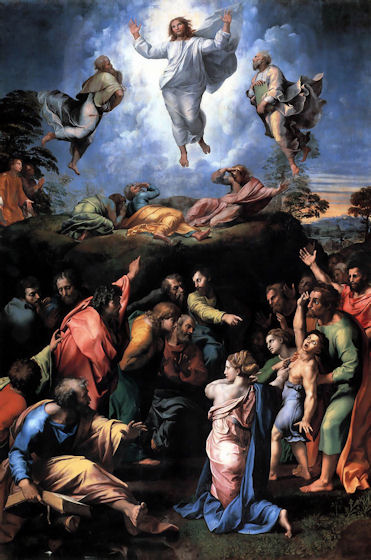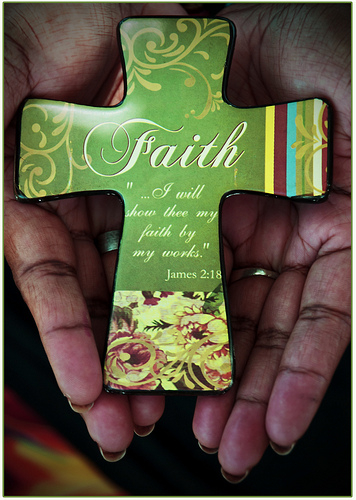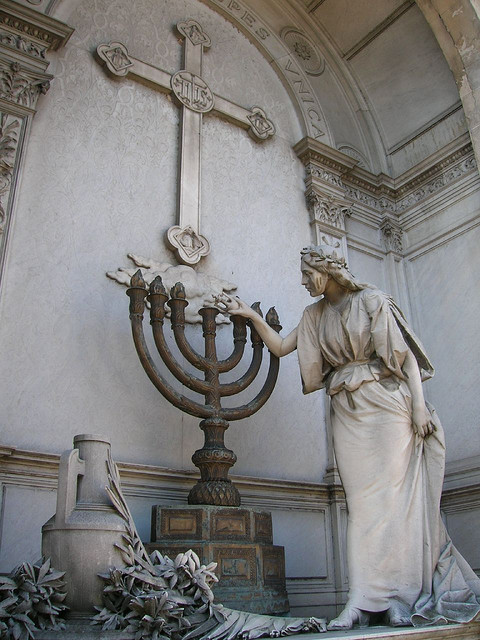Prophet Jeremiah did not care much for his heritage. He was born into the Priesthood. He was raised as one and prepared for the task of mediating the relationship between man and God through the sacrificial system of ancient Judaism. But then an anointing came upon him. It set him on a collision course with the institution he was raised to serve and turned him into an acerbic critic of the tradition into which he was born. That turn-around was in fact central to his calling. As the Lord said:
“For, behold, I have made thee this day a defenced city, and an iron pillar, and brasen walls against the whole land, against the kings of Judah, against the princes thereof, against the priests thereof, and against the people of the land. And they shall fight against thee; but they shall not prevail against thee; for I am with thee, saith the Lord, to deliver thee.” [1]Jeremiah 1:18-19

This is no small talk. What came out of this calling was not just about railing against the neighbourhood priest who got things wrong. It wasn’t about breaking the unholy alliance of royalty and clergy that undermined the checks and balance that all societies need. Jeremiah went for the jugular of the priesthood. He set his jeremiad against the sacrificial system:
“Thus saith the Lord of hosts, the God of Israel; Put your burnt offerings unto your sacrifices, and eat flesh. For I spake not unto your fathers, nor commanded them in the day that I brought them out of the land of Egypt, concerning burnt offerings or sacrifices: But this thing commanded I them, saying, Obey my voice, and I will be your God, and ye shall be my people: and walk ye in all the ways that I have commanded you, that it may be well unto you.” [2]Jeremiah 7:22-23
If Joe Blogs had made that statement, you would just simply pull him by the ear and drag him to Leviticus. But Jeremiah was no Mr Blogs. He was a priest. He knew the Law. Shocking!
There are those upon whom calling has laid the burden of charitably deconstructing difficult texts. We call them exegetes. They went to town explaining what Jeremiah meant or didn’t mean. Some day we will discuss them. For now, I’m more interested in the war of the worlds. Jeremiah’s post-priesthood, anti-priesthood vituperations were not isolated. It’s as though when priests become prophets something snaps. Take Ezekiel for instance. [3]Ezekiel 1:3
If Joe Blogs had made that statement, you would just simply pull him by the ear and drag him to Leviticus. But Jeremiah was no Mr Blogs. He was a priest. He knew the Law. Shocking!
He was born a priest and as such called by God to teach Israel the Law. [4]Malachi 2:7 One of his earlier visions took him to the temple to see that the priests and the elite had turned the house of God into a den of the occult. [5]Ezekiel 8 Mid way into his revelations, he turned his attention away from the officials and landed blows on the entire system:
“Because they had not executed my judgments, but had despised my statutes, and had polluted my sabbaths, and their eyes were after their fathers’ idols. Wherefore I gave them also statutes that were not good, and judgments whereby they should not live.” [6]Ezekiel 20:24-25
Putting a fine face on that one could never be easy. It basically exemplifies the extremes of the prophet as a social critic and the priesthood (not just the priest) as the butt of his calling. The office of priests and that of prophets were permanently divided. The former held a position of power and the latter was called to speak truth to power. Whenever the heavens felt like raising the tempo, they called a priest to dish the dirt on priests. There are those who seize on these prophecies to validate their antipathy to the sacrificial system. Others use them to beat up on the Laws of Moses. For many Christians, what greater proof is there that, according to Ezekiel, the Law is not good.
Jesus held both the Law and the prophets in great honour and appeared to believed he had a role to facilitate a confluence of both.
But the approach of Jesus to these institutions ran in quite the opposite direction to those of some in his church. As far as Jesus was concerned the Law was good. Scripture (which at the time included only the Torah, Nevi’im and Kethuvim, or the ‘Old Testament’, and no New Testament) was sacred. [7]John 10:35 He commanded a stricter observance of the Law. Adultery was expanded to include all lustful inclinations. And if there was anything bad in the law, it was either a question of interpretation, as with Sabbath observance, or the tinkling by scribes. The iconoclast in him had plenty to say to the spiritual leadership of his time. Most were not complimentary. But he made a clear distinction between office and officials. And he instructed his church to do the same:
“Then spake Jesus to the multitude, and to his disciples,Saying The scribes and the Pharisees sit in Moses’ seat: All therefore whatsoever they bid you observe, that observe and do; but do not ye after their works: for they say, and do not.” [8]Matthew 23:1-3
His perception of his calling went beyond exhortations to observe tradition. As one with a prophetic anointing upon him and at the same time the priest of the ministry of reconciliation, [9]Colossians 1:20 he held both the Law and the prophets in great honour and appeared to believed he had a role to facilitate a confluence of both.
The venue: Mount Olive. Participants: Moses the law-giver, Elijah, one of Israel’s greatest prophets and a powerful instrument of the Holy Spirit, and the Lord himself. This was not a round-table conference, it was no table-your-gripe, jaw-jaw type affair. Those who were called upon to witness this encounter of celestial proportions found the whole experience overwhelming. All the rest of us could glean out of the episode were a transfiguration and a message.
“Then answered Peter, and said unto Jesus, Lord, it is good for us to be here: if thou wilt, let us make here three tabernacles; one for thee, and one for Moses, and one for Elias.” [10]Matthew 17:4
The church of God in Christ Jesus is not a place of conflict between the prophets and the law, the church is a fulfilment of both. Neither is it a place of conflict between the Holy Spirit and the Law. On the Mountain of God, the law and the prophets met in Christ Jesus and transfigured him.
The transfiguration is a message to build a church in which the mystique and power of these great, seemingly contending ministries converge. It is a vision for the church of God in Jesus Christ to be enlightened by the knowledge and grace of history and tradition. The episode reminds us that Christianity did not drop from heaven. Its calling is rooted in history, in the Law and in the prophets. Its mission as given by both Isaiah and Micah [11]Isaiah 2:4 & Micah 4:2 is to teach the world the ways of the God of Israel that we may walk in His paths.
There are those that are inebriated with the diatribe in the book of Hebrews about one covenant replacing another. How could God’s covenant with me replace a covenant to which I am not party. Scripture says: “Moses commanded us a law, even the inheritance of the congregation of Jacob.” [12]Deuteronomy 33:4
Less than one per cent of the global church population have biological links to Jacob. The promise to make us all spiritual children to the father of monotheism was to Abraham, not Jacob. The Sinaitic covenant was never meant to be a constitution by which the whole world must live. It’s God’s covenant with one nation: the children of Jacob, but others may draw lessons from it.
Hillel, a Jewish sage who lived just before Jesus Christ was asked to state the law standing on one leg. He did it. He said: “What is hateful to you, do not do to your fellow: this is the whole Torah. The rest is commentary. Go study it”.
The transfiguration is a message to build a church in which the mystique and power of these great, seemingly contending ministries converge.
Jesus made this the central lesson for his church. There is therefore no separation of ideals between the old and the new. It’s not about sacrifices and rituals. The challenge for the church is to locate and bring the critical lessons from tradition to bear on the present and be transfigured by them. Christ’s church should seek out the transforming power of the past and draw from it for a glorious future. Jesus said it was the yardstick by which our maturity for citizenship of his kingdom would be measured:
“Therefore every scribe which is instructed unto the kingdom of heaven is like unto a man that is an householder, which bringeth forth out of his treasure things new and old.” [13]Matthew 13:52
Go study that.


